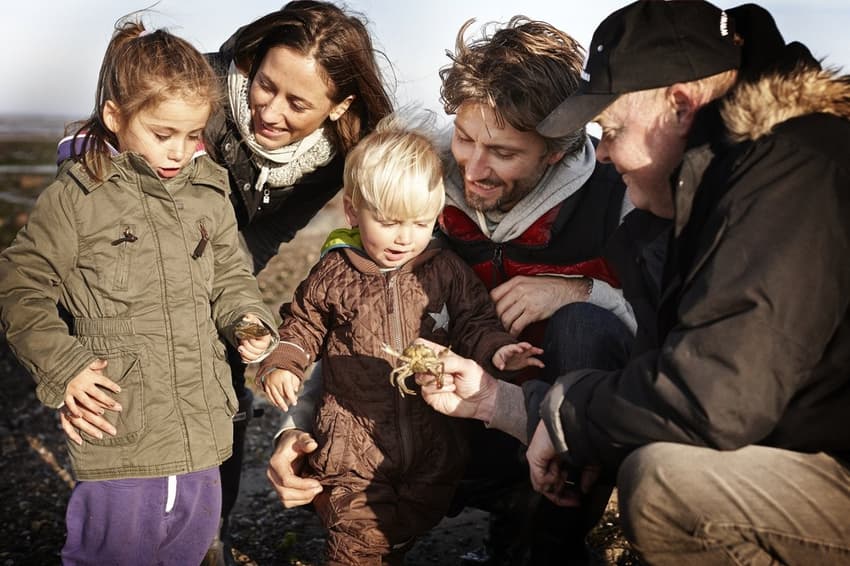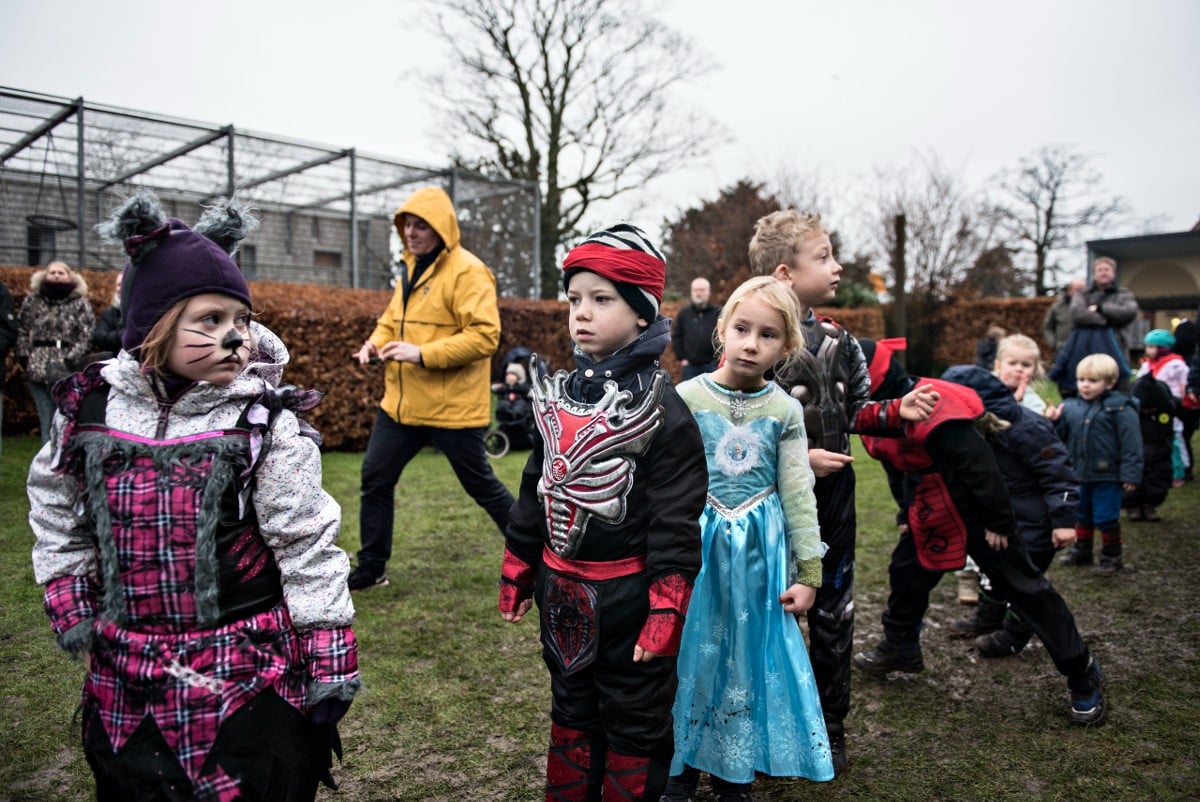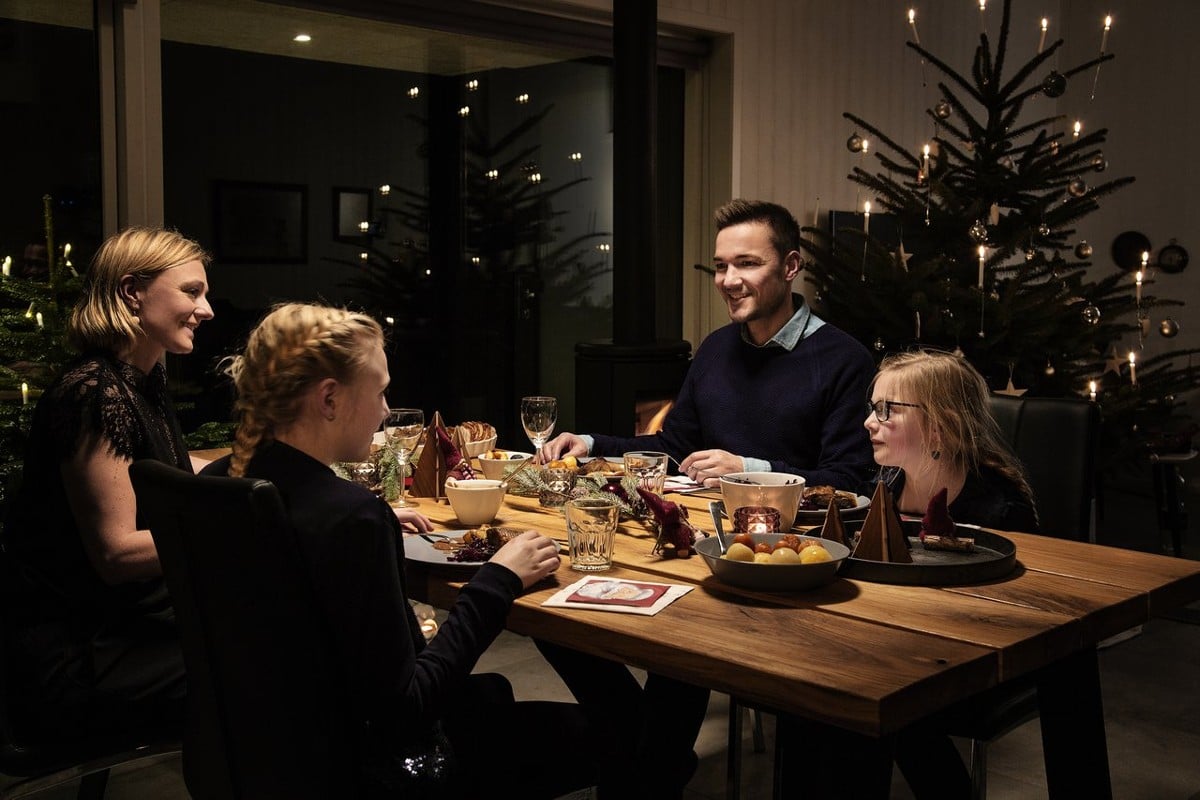'They will treat you like their own child': What it's really like having Danish in-laws

Having a Danish partner naturally means you'll integrated into their family life too, which can be particularly challenging for foreigners. Our readers share their insights and experiences of having Danish in-laws.
Many of the readers who replied to the survey The Local published last week on foreigners' experience of Danish in-laws seemed surprised at just how much time their Danish partner spent with their family. But all but a handful of respondents seemed to appreciate their adopted Danish families, even if family celebrations could sometimes get a bit much.
"There are way more family 'get-togethers', with a lot more food and alcohol," said Caz, a British citizen married to a Dane.
Jeanette, a British woman who moved to Denmark with her Danish husband, aged 52, agreed: "They meet up more often, they call and text a lot more often. They live closer together and spend more time with family than friends."
Indeed, the near-obligatory events held by extended Danish families can be so frequent that Danes living abroad sometimes moved home just to save on travel costs, as the husband of Ashley, a respondent from Canada, did. "It can keep them coming back several times a year if they live abroad, which was one of the reasons we chose to move to Denmark together."
For some readers, meeting their partner's families had transformed their idea of Danish culture.
"Prior to coming to Denmark, I used to think that they were so individualistic," said Chela, from the Philippines. "But now I think they express their love for their families in a different way. They value the individualism and independence of other family members, but they won't hesitate to help when they're in need. I have heard many stories from other Filipinos who married Danes about how good their relationships are with their in-laws and stepchildren."

Traditions and celebrations
Some Danish family celebrations, even for just a birthday, can also be so large as to be intimidating to some foreigners, with cousins, uncles and aunts all invited.
One respondent, who is married to a Dane, said that the "big birthday celebrations" had for her been one of the most challenging things about moving to the country.
"I am a shy person so I openly dread my birthday now," she explained. "I know everyone means well and it’s tradition but it’s agony to someone not used to being centre of attention."
Alice, who is living with a Dane but has no children yet, agreed that the events could be "quite overwhelming and over-stimulating."
"Their family is quite big compared to my family, so when there is a family event at their houses or venue, it's very much packed," she said.
These events are also so hard to get out of that one foreigner complained it was impossible to celebrate Christmas or New Years' Eve anywhere else or with anyone else.
And it wasn't only the amount of people that was was overwhelming, but the sheer amount of traditions, such as special birthday songs, dancing around the Christmas tree, activities for Fastelavn (Danish Mardi Gras), and bringing out the traditional Højskole and Efterskole songbooks for singing at family events.
Danes can be so fixated on their own traditions, indeed, that some foreigners complained they had found themselves unable to celebrate their own traditions from back home.
One foreigner complaining that when she hosted her own birthday party for herself, her mother-in-law had arrived with a large bag of mini Danish flags and a candle with the Danish flag on it. "God forbid we have one celebration without the Danish flag!".

It's a rare Danish Christmas lunch that only has four family members at it, but woe betide the foreigner that tries to enforce their own traditions. Photo: Mikkel Heriba/Visit Denmark
Informal hanging out
Danish families also like to spend time with one another without any single "central event", reported Thomas, from France. "Just coffee and sitting there, with everyone doing their own thing."
Some respondents said they had initially struggled to adapt to the lack of such a strict division between hosts and guests, with all family members joining in to prepare food and do household chores.
"Danish family members come over to your house and are at home doing things like helping with dishes, preparing food, and generally doing things together instead of "being hosted", as it were," said Ashley, although she appreciated that there was always "plenty of banter".
Indeed, Thomas said that the traditional Danish 'teasing' seemed to function like a kind of entrance test.
"Joking and teasing are ways to test your sense of humour and integrate you if you pass," he said. "I’m French and My father-in-law served me Italian wine for the full first year just to to tease me!"
The downside of bonding over chores is that one foreigner, who gave no details about herself, felt there was never any 'down time' when she was with her Danish family.
"They never relax, are always doing chores on the weekends, planning things months ahead, gardening, restoring the house," she said. "It's nice, but if you like to have peace and quiet, they don’t know how to do that and will often think you have a lazy attitude."
Supportive but reserved
The same reader said she found her Danish partner's family's reluctant to discuss emotions.
"If someone shares anything very personal such as disease or difficulty, they usually don’t comment too much on it, don’t give advice, and just answer with a “nå” or “for helvede”.
But she also reported that her Danish family had been supportive when she needed more practical help.
"They are very sweet and attentive, my svigermor ["mother-in-law"] follows up on me often since she knew about the pregnancy, and she takes care of her granddaughter quite a lot for my boyfriend's brother and family."
A Turkish woman said that while her Danish in-laws did not offer financial help in the way their Turkish equivalents might, they could be extremely thoughtful. "When I had a terrible period paid, my mother in law came with a warm pillow and medicine to ease my pain."
Abi from Alaska said her in-laws had called her frequently when she had a fever.
"If you're on really good terms with the in-laws," summed up Chela, from the Philippines, "they will really treat you like their own child."
Comments
See Also
Many of the readers who replied to the survey The Local published last week on foreigners' experience of Danish in-laws seemed surprised at just how much time their Danish partner spent with their family. But all but a handful of respondents seemed to appreciate their adopted Danish families, even if family celebrations could sometimes get a bit much.
"There are way more family 'get-togethers', with a lot more food and alcohol," said Caz, a British citizen married to a Dane.
Jeanette, a British woman who moved to Denmark with her Danish husband, aged 52, agreed: "They meet up more often, they call and text a lot more often. They live closer together and spend more time with family than friends."
Indeed, the near-obligatory events held by extended Danish families can be so frequent that Danes living abroad sometimes moved home just to save on travel costs, as the husband of Ashley, a respondent from Canada, did. "It can keep them coming back several times a year if they live abroad, which was one of the reasons we chose to move to Denmark together."
For some readers, meeting their partner's families had transformed their idea of Danish culture.

Traditions and celebrations
Some Danish family celebrations, even for just a birthday, can also be so large as to be intimidating to some foreigners, with cousins, uncles and aunts all invited.
One respondent, who is married to a Dane, said that the "big birthday celebrations" had for her been one of the most challenging things about moving to the country.
"I am a shy person so I openly dread my birthday now," she explained. "I know everyone means well and it’s tradition but it’s agony to someone not used to being centre of attention."
Alice, who is living with a Dane but has no children yet, agreed that the events could be "quite overwhelming and over-stimulating."
"Their family is quite big compared to my family, so when there is a family event at their houses or venue, it's very much packed," she said.
These events are also so hard to get out of that one foreigner complained it was impossible to celebrate Christmas or New Years' Eve anywhere else or with anyone else.
And it wasn't only the amount of people that was was overwhelming, but the sheer amount of traditions, such as special birthday songs, dancing around the Christmas tree, activities for Fastelavn (Danish Mardi Gras), and bringing out the traditional Højskole and Efterskole songbooks for singing at family events.
Danes can be so fixated on their own traditions, indeed, that some foreigners complained they had found themselves unable to celebrate their own traditions from back home.
One foreigner complaining that when she hosted her own birthday party for herself, her mother-in-law had arrived with a large bag of mini Danish flags and a candle with the Danish flag on it. "God forbid we have one celebration without the Danish flag!".

Informal hanging out
Danish families also like to spend time with one another without any single "central event", reported Thomas, from France. "Just coffee and sitting there, with everyone doing their own thing."
Some respondents said they had initially struggled to adapt to the lack of such a strict division between hosts and guests, with all family members joining in to prepare food and do household chores.
"Danish family members come over to your house and are at home doing things like helping with dishes, preparing food, and generally doing things together instead of "being hosted", as it were," said Ashley, although she appreciated that there was always "plenty of banter".
Indeed, Thomas said that the traditional Danish 'teasing' seemed to function like a kind of entrance test.
"Joking and teasing are ways to test your sense of humour and integrate you if you pass," he said. "I’m French and My father-in-law served me Italian wine for the full first year just to to tease me!"
The downside of bonding over chores is that one foreigner, who gave no details about herself, felt there was never any 'down time' when she was with her Danish family.
"They never relax, are always doing chores on the weekends, planning things months ahead, gardening, restoring the house," she said. "It's nice, but if you like to have peace and quiet, they don’t know how to do that and will often think you have a lazy attitude."
Supportive but reserved
The same reader said she found her Danish partner's family's reluctant to discuss emotions.
"If someone shares anything very personal such as disease or difficulty, they usually don’t comment too much on it, don’t give advice, and just answer with a “nå” or “for helvede”.
But she also reported that her Danish family had been supportive when she needed more practical help.
"They are very sweet and attentive, my svigermor ["mother-in-law"] follows up on me often since she knew about the pregnancy, and she takes care of her granddaughter quite a lot for my boyfriend's brother and family."
A Turkish woman said that while her Danish in-laws did not offer financial help in the way their Turkish equivalents might, they could be extremely thoughtful. "When I had a terrible period paid, my mother in law came with a warm pillow and medicine to ease my pain."
Abi from Alaska said her in-laws had called her frequently when she had a fever.
"If you're on really good terms with the in-laws," summed up Chela, from the Philippines, "they will really treat you like their own child."
Join the conversation in our comments section below. Share your own views and experience and if you have a question or suggestion for our journalists then email us at [email protected].
Please keep comments civil, constructive and on topic – and make sure to read our terms of use before getting involved.
Please log in here to leave a comment.